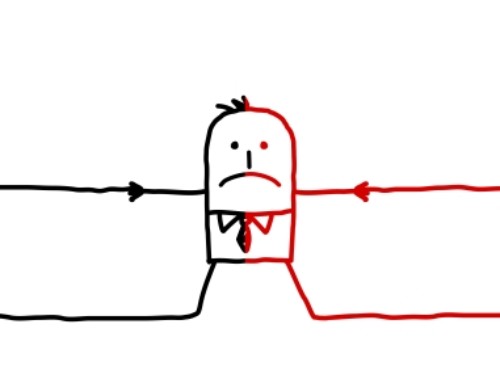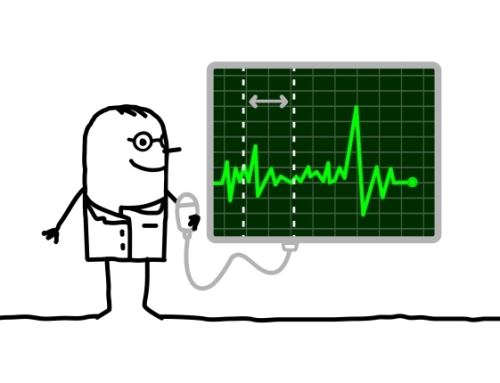In this article, I discuss the most important factors in getting a good night’s sleep
Getting a good night’s sleep is important for feeling good and being productive. There are three basic considerations to attend to in order to have the best chance of getting a good night’s sleep: (1) Choose your time in bed so that it coincides with your body’s preferences; (2) Build up ‘sleep drive’ during the day; (3) Decrease your tension and physical arousal so that you are relaxed while in bed. In the following sections, I will discuss how you can address each of these factors in order to get a good night’s sleep.
Choose your time in bed so that it coincides with your body’s preferences
Each of us has a particular time frame which is optimal for sleep. For example, some people affectionately known as ‘larks’ sleep better if they get up early in the morning and go to bed early at night. At the other end of the spectrum are ‘night-owls’ (of which I am one) who sleep better by rising later in the morning and going to bed later in the evening.
Despite messages in our culture promoting the benefits of an ‘early to bed, early to rise’ lifestyle, neither sleep schedule is better than the other. What’s important is to try to schedule your rising and bed times to match the time during which you are more likely to be able to sleep well. So if you are truly a night owl, try to schedule later rising and bed times. If you’re a ‘lark’ then ‘early to bed, early to rise’ will work better for you. Mismatches between your individual body needs and your time in bed will make it harder for you to sleep well.
Build up sleep drive during the day
Just as we are more likely to eat when we are hungry, drink when we are thirsty and have sex when we are aroused, we are more likely to sleep when we are sleepy. In each case, a ‘drive’ has built up which leads to the person engaging in a behaviour which decreases that drive.
Being active during the day will help you build your sleep drive so that you are more likely to be able to sleep when you go to bed. Engaging in less activity during the day, taking afternoon naps or lingering in bed after a good night’s sleep will interfere with your building the drive to sleep. In turn, having a lower sleep drive will result in it being more difficult for you to sleep at night. So get active during the day. It will not only improve your sleep, it will also be good for your mood.
Decrease your physical arousal so that you are relaxed while in bed
Being relaxed when you’re in bed makes it more likely you will have a good night’s sleep. In contrast being tense, stressed or physically aroused will interfere with a good night’s sleep. Therefore, it’s a good idea to use strategies to foster relaxation and decrease your arousal and stress levels. These include having a buffer period of an hour before you go to bed in which you wind down with relaxing activities such as listening to calming music, taking a bath or doing some light reading.
You should also practice skills to directly calm your body’s arousal system such as relaxed breathing, meditation, progressive muscle relaxation and imagery. Your arousal-reducing repertoire should also include cognitive restructuring skills to address negative and worrisome thoughts which drive up your arousal and anxiety levels. Worries which fuel sleep-disrupting anxiety can be related to life concerns such as your work, relationships or finances as well as those focused on perceived dire consequences of not being able to get to sleep. See a psychologist who specializes in cognitive behavioural therapy (CBT) for help in changing these ‘hot thoughts’ to reduce your stress and physical arousal.
Finally, getting a good night’s sleep is aided by your taking steps to decrease ‘conditioned arousal’. That is, if you engage in activities other than sleeping in your bed, you are likely to be aroused or tense while in bed because of the conditioned association between your bed and these arousing activities. So try to use your bed just for sleeping (possibly also for sex if there is no alternative setting you can use for this activity). You should also make it a point to get out of bed if you have been lying there for an extended period of time without getting to sleep. Continuing to lie in bed without sleeping will condition you to associate your bed with arousal rather than sleep. Getting out of bed breaks this form of conditioned arousal and makes it more likely that you will be able to sleep when you are in bed.
Practice good sleep hygiene
An additional factor promoting a good night’s sleep beyond the three key ones I’ve mentioned is to engage in good sleep hygiene. Sleep hygiene involves a checklist of items which, if addressed, make it easier for a person to sleep. They include sleeping in a comfortable, quiet and cool environment.
It’s important to note that good sleep hygiene is necessary but not sufficient for a good night’s sleep. That is, addressing your sleep schedule, increasing your sleep drive and decreasing arousal while you’re in bed are more important than sleep hygiene factors. As such, you will need to address these three key factors even if you’ve practiced good sleep hygiene if your goal is to get a good night’s sleep.
Getting a good night’s sleep is an important element of self-care which is fundamental to making progress on issues in depression counselling and anxiety counselling–to name just a couple of relevant areas. As such, it is a goal I commonly help my clients target in my work as a Calgary psychologist and a Cochrane psychologist. Following the suggestions I presented in this article should help you in your goal of getting a good night’s sleep.
May you sleep soundly,
-Dr. Pat







Leave A Comment